Signs of labour
Know the signs
There are several signs that labour might be starting, including:
- contractions or tightenings
- a "show", when the plug of mucus from your cervix (entrance to your womb, or uterus) comes away
- backache
- an urge to go to the toilet, which is caused by your baby's head pressing on your bowel
- your waters breaking
The early (latent) stage of labour can take some time.
Call your midwife or maternity unit if:
- your waters break
- you have vaginal bleeding
- your baby is moving less than usual
- you're less than 37 weeks pregnant and think you might be in labour
These signs mean you need to see a midwife or doctor.
Latent phase of labour
The latent or warming up phase is the body getting ready for active labour. Every woman’s experience is different so it can be difficult to know what to expect, but during this stage you may have irregular tightening’s, backache and / or period type pains.
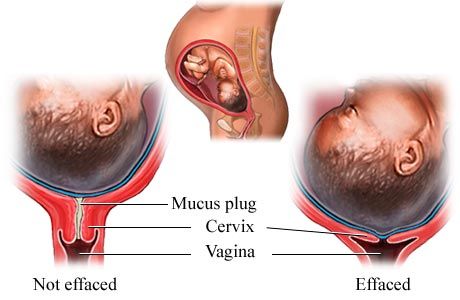
CERVIX Softens and thins, getting ready to open
It can be very stop-start. It can last for a few hours or a few days. The baby’s head might engage a bit more and you might have a “show” (a mucous discharge which may be lightly blood-stained or browny).

Active labour comes later – it’s when things start to gather pace, you will find your focus will be more on the contractions and they will be more intense and regular. This is usually when you would contact the hospital.
The active phase is said to begin when the cervix is 4cms or more dilated with strong regular contractions.
What do contractions feel like
When you have a contraction, your womb tightens and then relaxes. For some people, contractions may feel like extreme period pains.
You may have had contractions during your pregnancy, particularly towards the end. These tightenings are called Braxton Hicks contractions and are usually painless.
Your contractions tend to become longer, stronger and more frequent as your labour progresses. During a contraction, the muscles tighten and the pain increases. If you put your hand on your abdomen, you'll feel it getting harder; when the muscles relax, the pain fades and you will feel the hardness ease.
The contractions are pushing your baby down and opening the entrance to your womb (the cervix), ready for your baby to go through.
Your midwife will probably advise you to stay at home until your contractions become frequent.
Call your midwife or maternity unit for guidance when your contractions are in a regular pattern and:
- last at least 60 seconds
- come every 5 minutes or
- you think you are in labour
Backache often comes on in labour
You may get backache or a heavy, aching feeling.
Eating and drinking
Eating and drinking is very important for all stages of labour.
It’s helpful to bring snacks and drinks with you, so you can eat and drink, little and often during labour. This is especially important if you plan to use a bath or birth pool as your body dehydrates more quickly.
You would not run a marathon on an empty stomach.
Suggestions:
- Still isotonic sports drinks

- Bananas/fruit · Flapjacks/cereal bars

- Biscuits/chocolate

- Dried fruit/nuts

If your body is dehydrated or lacks energy it will not sustain the strong contractions needed for your labour to progress
Try to pass urine every few hours, this makes sure your bladder does not get too full as this can cause problems too.
What can help?
- Have a bath or shower. Warm water can help relax you and ease the pain of contractions
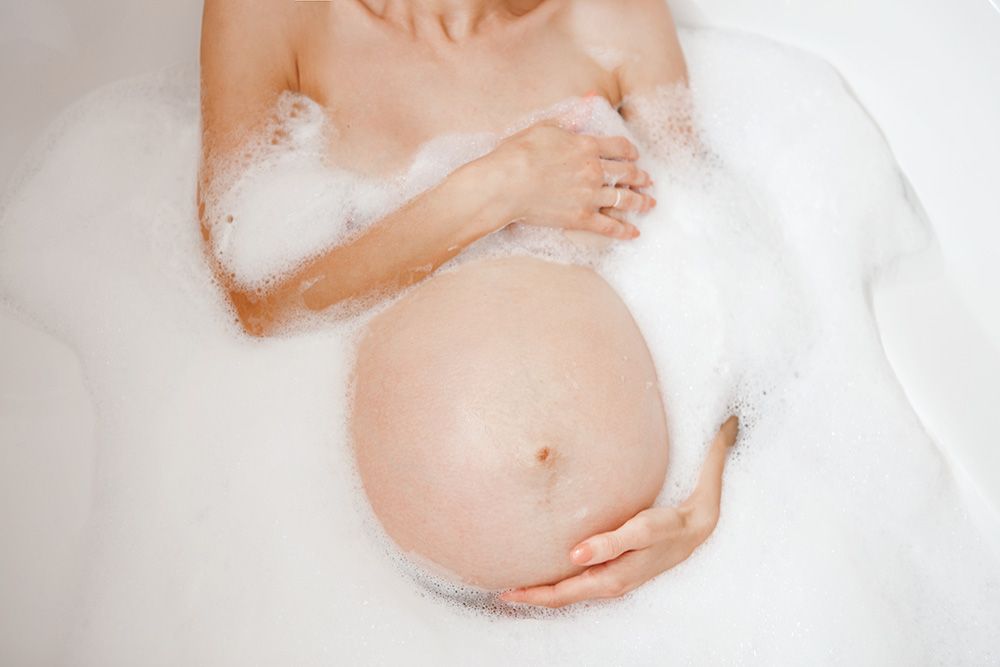
- Distract yourself. You could go for a walk, potter around the house, or sit on a birth ball watching a film

- Be careful not to wear yourself out though, you could be in labour for some time – follow your instincts, mix rest with periods of activity – but we do know that an upright position can help to shorten labour
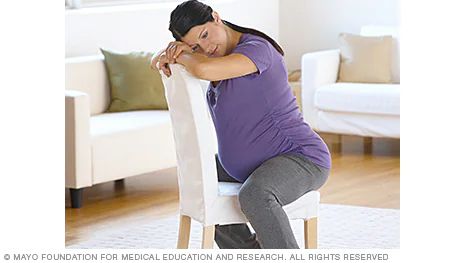
- There are lots of positions you can adopt to help you cope with labour. These may change depending on how you are feeling – do whatever feels right for you
- We know women who like rhythm and repetition during birth
- Lean on or over a wall, bed, bean bag or cushions
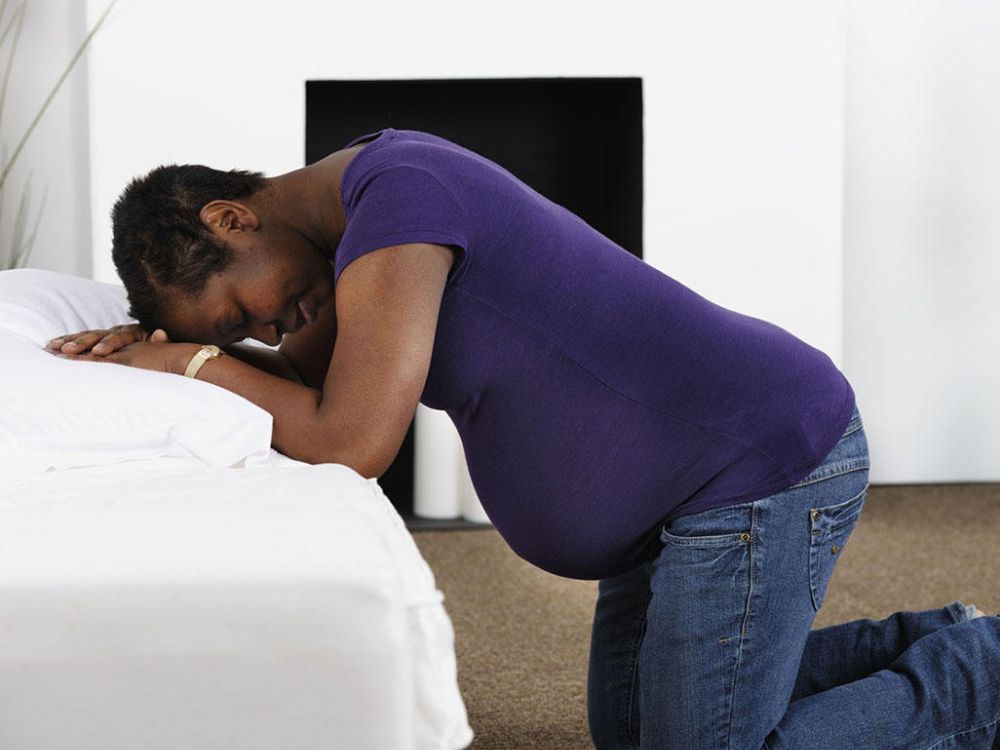
- Kneel, hold onto a partner or chair, try some “slow dancing”
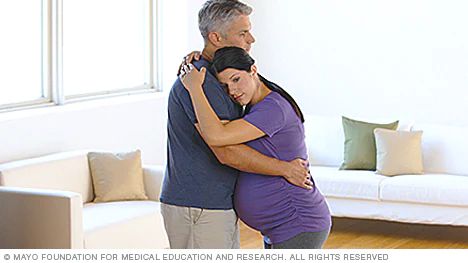
- Rock or circle your pelvis in any position that is comfortable or on a birth ball.
Top Tips
Birth is a cocktail of hormones, to get them all working together you need to feel safe, supported and not scared – Pick birth companions who you know will support you and turn off lights, close the curtains, make your own little nest.
Other things that can help:
- Familiar things around you, your own music
- Scents that remind you of relaxation or a lovely memory
- Breathing well in birth can help with reducing fear and give your baby lots of oxygen.
- Massage can help those birth hormones and be a distraction – follow our link to a useful video
When to phone

We advise you to stay at home as long as possible during the latent phase as there’s lots of research to say this is the quickest way for labour to start. We advise you to call us if you experience:
- Strong regular contractions
- Waters breaking or fresh red bleeding
- A change in baby’s movements
- Constant pain
- Any other concerns
We may not always advise you to come into the hospital – we may give you more advice and support to stay home a little longer. You are always welcome to attend for an individual assessment if you would prefer, but you might be advised to return home after this. Most importantly, we advise you to contact us whenever you need some support/guidance or with any questions. We are always here to help.
What happens when my waters break?
It's likely your waters will break during labour, but it can also happen before labour starts.
Your baby develops and grows inside a bag of fluid called the amniotic sac. When it's time for your baby to be born, the sac usually breaks and the amniotic fluid drains out through your vagina. This is your waters breaking. Sometimes when you're in labour, a midwife or doctor may offer to break your waters.
If your waters break naturally, you may feel a slow trickle or a sudden gush of water you cannot control. To prepare for this, you could keep a sanitary towel (but not a tampon) handy if you're going out, and put a protective sheet on your bed.
Amniotic fluid is clear and pale. Sometimes it's difficult to tell amniotic fluid from urine. When your waters break, the water may be a little bloodstained to begin with.
Tell your midwife immediately if:
- the waters are smelly or coloured
- you're losing blood
This could mean you and your baby need urgent attention.
If your waters break before labour starts, call your midwife. Use a sanitary pad (not a tampon) so your midwife can check the colour of the waters.
If labour does not start after your waters break
It's usual to go into labour within 24 hours of the waters breaking. You'll be offered an induction if you do not because, without amniotic fluid, there's an increased risk of infection for your baby.
Until your induction, or if you choose to wait for labour to start naturally, tell your midwife immediately if:
- your baby moves less than usual
- there's any change in the colour or smell of any fluid coming from your vagina
You should take your temperature every 4 hours when you're awake, and tell your midwife if it's raised. A raised temperature is usually above 37.5C, but you may need to call before this – check with your midwife.
There's no evidence that having a bath or shower after your waters have broken increases your risk of infection, but having sex might.
For further information Contact Numbers ( 24/7 )
Ysbyty Ystrad Fawr Hospital
Birth Centre - 01443 802437
Nevill Hall Hospital
Birth Units - 01873 732137
Royal Gwent Hopsital
Birth Units - 01633 234009
Ysbyty Aneurin Bevan Hospital
Birth Units - 01495 363309
Grange University Hospital
Alongside Birth Centre - 01633 493613
Triage Unit - 01633 493530




